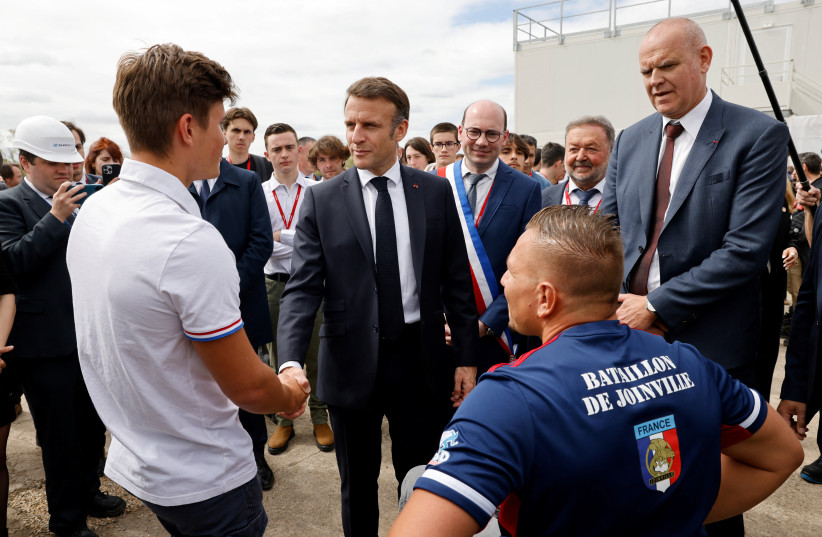During halftime of Germany´s wheelchair rugby game against Canada at the Paris Paralympics, Jens Sauerbier was missing a crucial part of his wheelchair and needed a repair to continue playing.
“The metal cage at the front of my chair broke. They welded it for me during halftime, then I was ready to go again.”
It took 10 minutes for technicians to weld the chair back together. Otherwise, Sauerbier says, the game would have been over for him.
Mid-game and pre-competition repairs are not unusual for para-athletes. Wheelchairs, prosthetic limbs and crucial equipment can and do break, even at the highest level of competition.
This is especially true in a high-contact sport such as wheelchair rugby. “If you're driving against other people at 15/20 km/h, some things might break,” Sauerbier said.

“These are athletes that are competing at their absolute highest. They're breaking world records, so they're going to break stuff“, Jeffrey Waldmuller, an Ottobock technician and a para-athlete himself told Reuters.
Ottobock saves the day
Ottobock, a German med-tech firm that makes prosthetics, plays a crucial role in ensuring athletes can compete even if equipment does break. The company, which set up a pop-up workshop inside the Paralympic Village, said it carried out roughly 2,700 repairs during the Games.
Around 55% of the repairs made were on wheelchairs, 45% were on prosthetic, orthotic and other repairs, the company said.
The firm was present at events such as para archery and para athletics, but was also available to fix everyday equipment used by athletes who might find themselves blocked or slowed down because a piece of equipment has failed them.
“Unfortunately, it’s something that I think all prosthetic users worry about, because if my prosthetic breaks, I’m potentially stranded, either unable to walk or even unable to compete, and that’s an issue,” Antonio Flores, a blade sprinter from Malta, who made sure to bring his own tools for small fixes on his prosthetic leg like bolt tightening, told Reuters.
Ottobock set up an international team, made up of people who could speak more than 35 languages, and shipped 23 tons of equipment from Germany to Paris. These included 3D printers and laser machines to help athletes with repairs that could make the difference between a podium placement and a wooden spoon.
Peter Franzel, Ottobock’s head of events and exhibitions, pointed out that athletes came to the repair center with varying quality and price tags on equipment. Though not the norm, the company completely replaced a prosthetic limb for an athlete ahead of competition because it was very worn.
At times a MacGyver mindset was called for when it came to last-minute fixes. When the bar that seated javelin throwers use to hold on to with their non-throwing arm went missing from an athlete´s stand before a competition, Waldmuller had to think on the spot.
“I'm just looking around and I see this old pipe just sitting beside a building and it was the perfect diameter... So we cut it, cleaned it up, drilled the holes, put new bolts through it and wrapped it with tape for grip. It was quick, it was dirty, but it worked,” he said.
“We're very confident when we make a repair that we're going to get them through the competition, but sometimes we have a band-aid fix to just get it working long enough to get them through this match or this race,” Waldmuller said.
Present at the Paralympics since Seoul 1988, Ottobock will next be on site for repairs at the Milano-Cortina Winter Paralympics in 2026.
